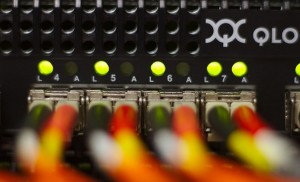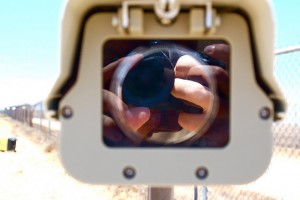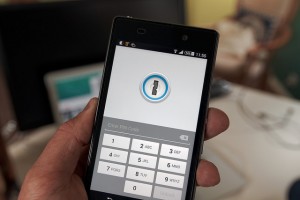 Assisted living facilities are dynamic environments. You have occupants with varying levels of medical needs alongside administrative, medical, and visiting personnel. It’s a somewhat complex security issue because residents and staff need to be able to move throughout the facility freely, but unauthorized entrants must somehow be kept out. The mental health and acuity of residents can also be a cause for concern. In an aging population medical conditions like dementia and Alzheimer’s can cause residents to wander off or get lost which is a major concern for staff and resident relatives. Thankfully by implementing security system solutions many of these concerns can be addressed.
Assisted living facilities are dynamic environments. You have occupants with varying levels of medical needs alongside administrative, medical, and visiting personnel. It’s a somewhat complex security issue because residents and staff need to be able to move throughout the facility freely, but unauthorized entrants must somehow be kept out. The mental health and acuity of residents can also be a cause for concern. In an aging population medical conditions like dementia and Alzheimer’s can cause residents to wander off or get lost which is a major concern for staff and resident relatives. Thankfully by implementing security system solutions many of these concerns can be addressed.
At Perfect Connections, Inc. our licensed security system integrators have been providing comprehensive security solutions to healthcare facilities throughout northern and central New Jersey for the past 23 years. Our team understands the importance of securing assisted living facilities isn’t solely about protecting physical assets, it’s about ensuring the safety and security of the people that live and work there. It’s about providing a peace of mind to not only the staff and residents, but resident’s families as well.
Comprehensive security systems should include fire alarms, smoke and carbon monoxide detectors, burglar alarms, a surveillance system, access control, and a monitoring service. One of the most important components that should concern assisted living facilities is access control. Access control can be implemented in a number of ways and an assisted living facility may require more than one mode.
The on-site staff will likely need access to areas where medication is stored and administrative offices, supply rooms, and medical records etc. Access not only has to be convenient, but limited to authorized staff. The reason this can sometimes be challenging is because residents want to be able to roam throughout the facility freely as do visitors. Fortunately with access control solutions the chances of a resident or visitor wandering into a restricted area are lowered significantly.
By installing readers at entries and distributing credentials (fobs, swipe cards, and proximity cards) to authorized users, access will be limited. The benefit of using readers in conjunction with credentials vs traditional locks and keys is you don’t have to worry about lost or stolen keys. Cards and fobs can be remotely disabled whereas a lost key may never be recovered which ultimately leads to changing out the locks and over time that can be costly.
According to Mark Jarman, President of Inovonics, “…the assisted living market has changed from one of simply providing clinical care, much like hospitals, to sprawling campuses which are often a blend of independent living, assisted living and skilled nursing services.” This creates a more complex environment that requires increased safety and vigilance. Assisted living facilities are full of activity, the constant coming and going of staff, residents, and visitors, it can be challenging to keep an eye on everything, that’s why having a surveillance system is vital. It’s a helpful tool that allows staff to keep track of patients that might have the tendency to wander and it gives residents a peace of mind. In the event an intruder is able to gain access to the facility, surveillance will help authorities catch the perpetrator and depending on the type of system, it can even be setup to send real-time alerts to staff members on their mobile devices.
Aside from surveillance and access control solutions it’s imperative and likely required by local and national laws to have a fire alarm system and smoke and carbon monoxide detectors. Fire alarm systems and detectors are lifesaving components that when tied to a monitored security system become even more effective. With a monitored system, when an alarm sounds, a signal is sent to the monitoring station which then immediately alerts emergency responders, and in unpredictable situations it is imperative to have the quickest response possible. This is critical in an assisted living facility as residents are likely slower moving and may have impaired hearing or eyesight. Some fire alarm systems can even indicate which detectors or alarms within the facility initiated the alert which is helpful to responders as they’ll have a better idea where to start when they arrive on site.
The reasons why an assisted living facility would need a security system are evident. There is a need to protect residents, staff, visitors, medical records, physical assets, and facility property. A comprehensive security system that includes access control, surveillance, fire alarms, smoke and carbon monoxide detectors, and a monitoring service is essential. At Perfect Connections, Inc. our licensed integrators can help design a custom and comprehensive system that is tailored to the specific needs of your facility. Every organization is unique and should be treated as such, especially when it comes to matters of security.
If you live or run a business in Central or Northern New Jersey and would like information on any of the topics discussed above, please call 800-369-3962 or simply CLICK HERE.
Image Credit: Image by U.S. Department of Agriculture-Flickr-Creative Commons

 s a vital role in any comprehensive security system. It helps authorities catch criminals and provides helpful insight into your business operations by collecting and analyzing data on a daily basis. Where and how is all of this visual and analytical data being “collected?” That is the ever pressing question for system integrators and end-users alike. Storing surveillance data can be as important to the efficiency of your security system as having the surveillance equipment itself. We are catapulting ourselves into the future with the constant evolution of technology in all aspects of life including security system components, and surveillance storage solutions are no exception, but not all are created equal.
s a vital role in any comprehensive security system. It helps authorities catch criminals and provides helpful insight into your business operations by collecting and analyzing data on a daily basis. Where and how is all of this visual and analytical data being “collected?” That is the ever pressing question for system integrators and end-users alike. Storing surveillance data can be as important to the efficiency of your security system as having the surveillance equipment itself. We are catapulting ourselves into the future with the constant evolution of technology in all aspects of life including security system components, and surveillance storage solutions are no exception, but not all are created equal. We live in an exciting time where it seems every day a new technology is being born. Everything from our computers to our phones to our everyday accessories are advancing at a rapid pace. The implications of a technology may not be fully realized until after the fact, and it may not always be an issue with the technology itself, but how it interacts with existing components of our already complex systems. This is especially true of security system components.
We live in an exciting time where it seems every day a new technology is being born. Everything from our computers to our phones to our everyday accessories are advancing at a rapid pace. The implications of a technology may not be fully realized until after the fact, and it may not always be an issue with the technology itself, but how it interacts with existing components of our already complex systems. This is especially true of security system components. When it comes to security systems you may have heard the term “edge technology,” “edge analytics,” or “edge devices.” What exactly do these terms mean and why are they important? When talking about security systems “the edge” is typically used when referring to video surveillance components. Every security system integrator and industry professional will likely have their own definition of what it means, but in summary “edge technology” refers to surveillance devices that operate, analyze, and record at their source versus transmitting all that information over a network to the system’s core. In traditional surveillance systems there is a central server where recorded data from peripheral devices is stored and analyzed. In an edge-based system cameras perform these functions locally.
When it comes to security systems you may have heard the term “edge technology,” “edge analytics,” or “edge devices.” What exactly do these terms mean and why are they important? When talking about security systems “the edge” is typically used when referring to video surveillance components. Every security system integrator and industry professional will likely have their own definition of what it means, but in summary “edge technology” refers to surveillance devices that operate, analyze, and record at their source versus transmitting all that information over a network to the system’s core. In traditional surveillance systems there is a central server where recorded data from peripheral devices is stored and analyzed. In an edge-based system cameras perform these functions locally. We use our smartphones and other mobile devices for many functions in our daily lives. It’s almost impossible to go through an entire day without seeing someone tapping, scrolling, or swiping through their phone, never mind using your own phone. We’ve created a mobile environment where convenience lies in the palm of our hands.
We use our smartphones and other mobile devices for many functions in our daily lives. It’s almost impossible to go through an entire day without seeing someone tapping, scrolling, or swiping through their phone, never mind using your own phone. We’ve created a mobile environment where convenience lies in the palm of our hands. When you’re starting any kind of project, what’s one of the first things you do? In all likelihood you go to your computer, smartphone, or mobile device and open up a search engine. You run search after search to find what you’re looking for. In our connected world of the IoT (Internet of Thing) we are, at least partially, reliant on what we can find online. You can find information on virtually anything. This includes anything from how to properly stain a deck to how to choose which security system integrator is the best.
When you’re starting any kind of project, what’s one of the first things you do? In all likelihood you go to your computer, smartphone, or mobile device and open up a search engine. You run search after search to find what you’re looking for. In our connected world of the IoT (Internet of Thing) we are, at least partially, reliant on what we can find online. You can find information on virtually anything. This includes anything from how to properly stain a deck to how to choose which security system integrator is the best. As a property manager you have a lot of people that depend on the safety and security of the real estate you oversee. Whether or not you own the properties you rent, or work with a landlord in managing their properties, a bulk of the responsibility lies on your shoulders. Your main goal is to attract responsible patrons, keep them, and build your brand. How can you do that if the property you oversee is publicly perceived to be too risky or unsafe? That’s the problem, if there has been an incident at a property that you own the public tends to remember and will likely steer clear of that address.
As a property manager you have a lot of people that depend on the safety and security of the real estate you oversee. Whether or not you own the properties you rent, or work with a landlord in managing their properties, a bulk of the responsibility lies on your shoulders. Your main goal is to attract responsible patrons, keep them, and build your brand. How can you do that if the property you oversee is publicly perceived to be too risky or unsafe? That’s the problem, if there has been an incident at a property that you own the public tends to remember and will likely steer clear of that address. As a business owner protecting your facility is always a top concern. Are you getting the coverage you need? If you have a comprehensive security system you’re already in a good position. However, a security system is only as good as the sum of its parts. One of the most crucial parts of a security system is the surveillance aspect. Surveillance systems are the eyes that keep watch over your business even when you can’t.
As a business owner protecting your facility is always a top concern. Are you getting the coverage you need? If you have a comprehensive security system you’re already in a good position. However, a security system is only as good as the sum of its parts. One of the most crucial parts of a security system is the surveillance aspect. Surveillance systems are the eyes that keep watch over your business even when you can’t. If you have a security system you might already understand the consequences of a false alarm. It is not something to be taken lightly and can have serious implications. False alarms can happen for any number of reasons and it’s important to understand why and how best to avoid them. No security system is perfect, and false alarms are bound to happen, but as end users and integrators it is our duty to try to minimize them. At
If you have a security system you might already understand the consequences of a false alarm. It is not something to be taken lightly and can have serious implications. False alarms can happen for any number of reasons and it’s important to understand why and how best to avoid them. No security system is perfect, and false alarms are bound to happen, but as end users and integrators it is our duty to try to minimize them. At 